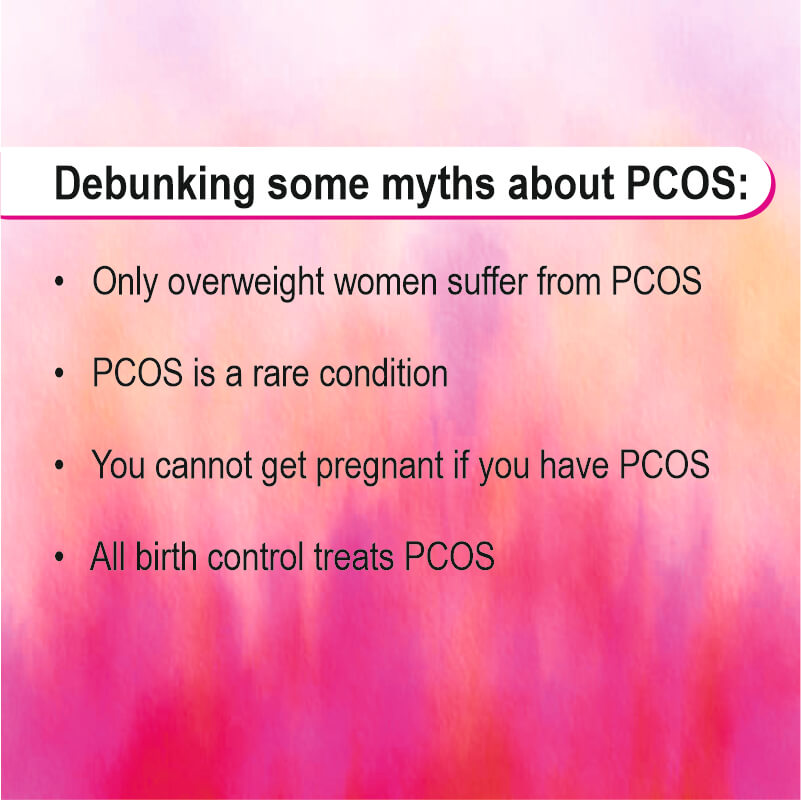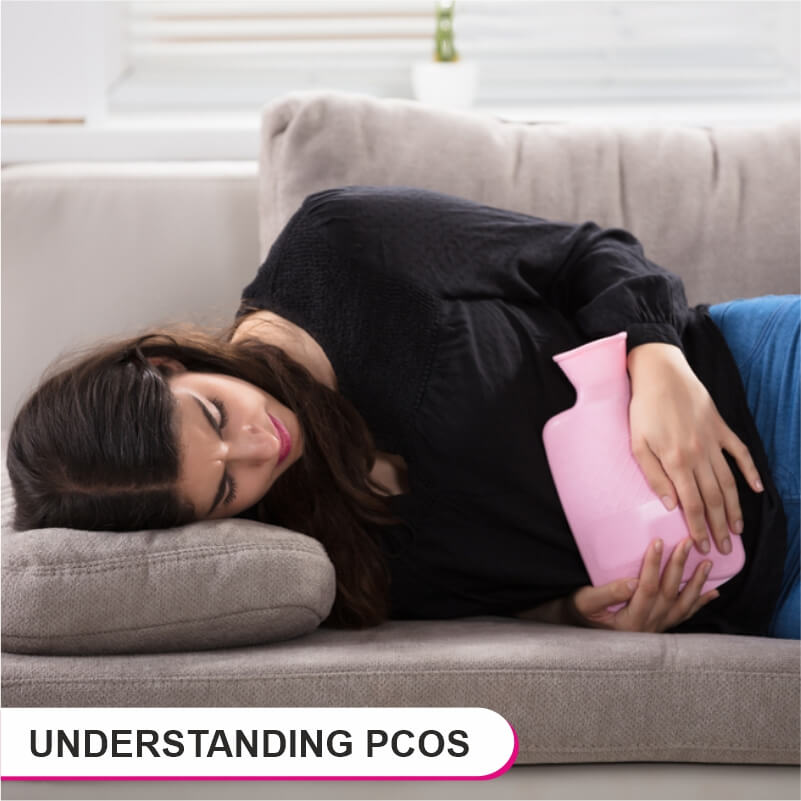Polycystic Ovary Syndrome (PCOS) is a hormonal health condition among women of child-
bearing age. This condition causes enlarged ovaries along with the formation of small cysts on
the outer edges, which may cause women to skip menstrual periods, eventually leading to
infertility issues. The causes for this hormonal imbalance are still not clearly understood. It is
known that the underlying factors that act as PCOS causes are a combination of genes and
environmental conditions. The most common PCOS symptoms are irregular menstrual cycle,
weight gain, acne, hair loss, and unwanted body and facial hair.
In the past few decades, the number of women suffering from PCOS has increased rapidly,
throughout the world. In India itself, one out of every five women of reproductive age suffers
from this hormonal disorder. The reason it is dangerous is that if this condition is left unchecked
or undiagnosed, it can lead to infertility among other long-term health concerns like diabetes
and heart diseases.
A study conducted by the department of endocrinology and metabolism, AIIMS, shows that
about 20-25 per cent of Indian women of childbearing age are suffering from PCOS. While 60
per cent of women with PCOS are obese, 35-50 per cent have a fatty liver. About 70 per cent
have insulin resistance, 60-70 per cent have a high level of androgen (male hormones) and 40-
60 per cent have glucose intolerance. Gynecologists say that more awareness is needed about
this topic for early detection which can prevent serious health issues in women.
In a country like India, with heavy cultural influence and societal pressure, PCOS is still an
undiscovered topic of conversation. With the pre-existing taboo around menstruation, it is
necessary to introduce as well as normalize this crucial topic. September 1 is celebrated as the
beginning of the National PCOS Awareness month in the country. The National Institute for
Research in Reproductive Health (NIRHH) inaugurated a Multidisciplinary Clinic
specifically for Polycystic Ovary Syndrome treatment on 30th April 2016.
Mental Health and PCOS:
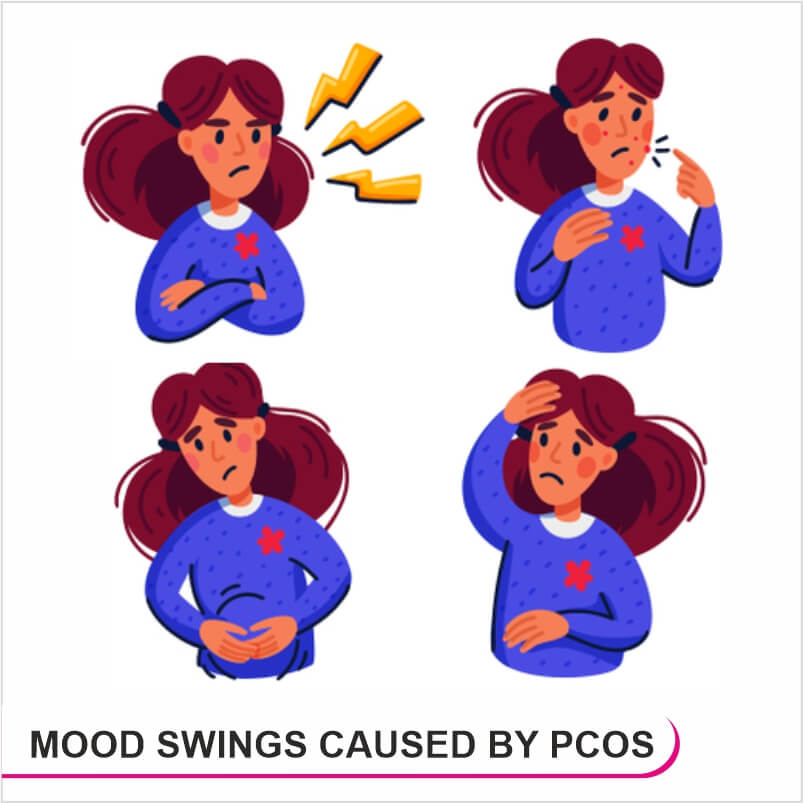
Apart from the physical irregularities, people with PCOS are three times more likely to suffer from mental health issues like anxiety and depression than people without PCOS. Even today there is a general lack of awareness regarding the condition in India and it often remains undetected for years. Early diagnosis and treatment are the keys to help prevent health problems. A study done by Sundararaman et al. in 2008, had determined psychological distress in PCOS patients and found it to be significantly related to obesity, infertility, acne, and hirsutism (excessive hair growth). Other key reasons include the inability to have children and the societal burden associated with it.
Body Image and PCOS:
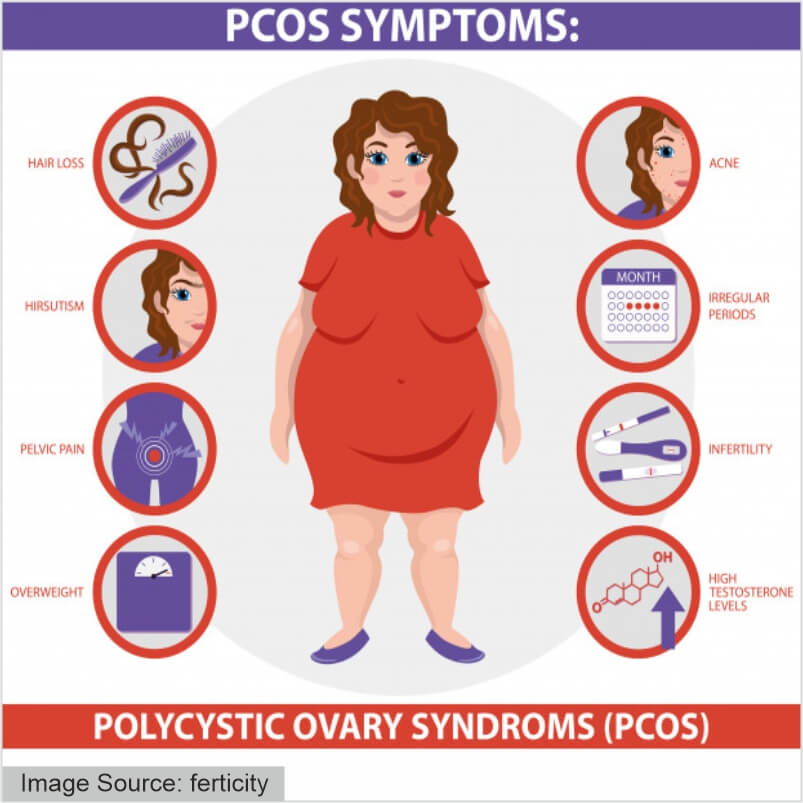
Many physically visible symptoms of PCOS like obesity, acne, and body hair, can make women
feel conscious about their body image. It makes them feel the exact opposite of what is
considered “beautiful” from a societal standpoint. For example, women would develop eating
disorders while trying to tackle PCOS-induced weight gain. It is important to consult a health
professional if PCOS is causing body image or self-doubt issues.
Talk to a close friend or a close relative, any person you trust, about the stress and anxiety caused
by PCOS. With their help, take necessary actions towards tackling the negative thoughts if you
feel negative about yourself and your body. One of the keys to managing PCOS successfully is,
therefore, being aware of the effect your mood can have on managing your lifestyle.
Consultation with a doctor can help you reverse this lifelong imbalance effectively only by
making some changes in your daily life.
How to Lose Weight with PCOS:
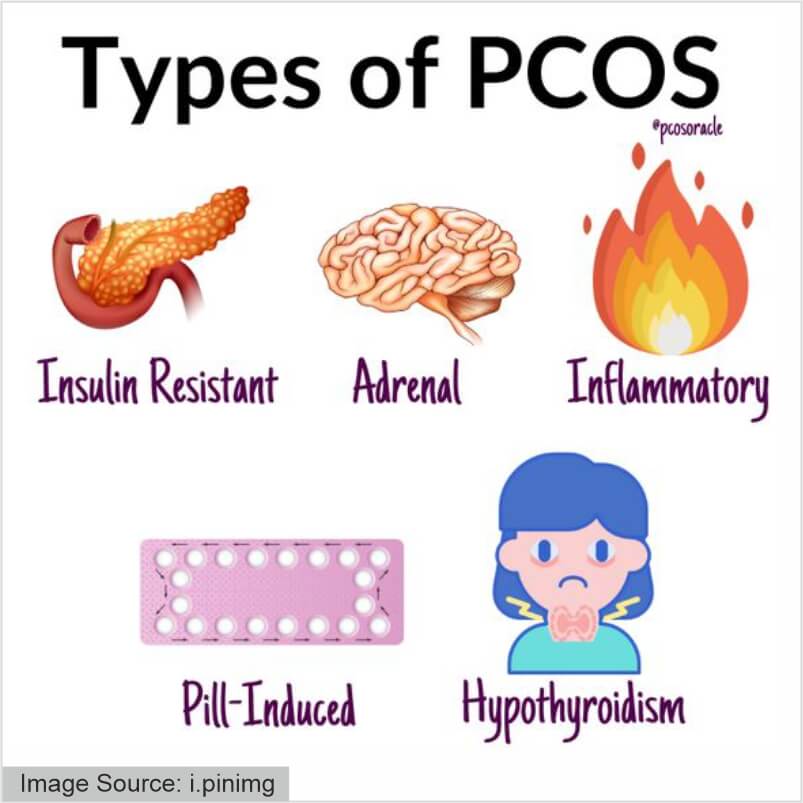
1) Eating Right
Making little but significant dietary changes can help you go a long way. A nourishing, balanced PCOS diet can regulate one’s period cycle and keep the weight in check. Increase the intake of foods like broccoli, spinach and eggs that are rich in protein. A diet high in fiber can help improve your digestion. Almonds, cashews and bananas are PCOS- friendly foods rich in magnesium.2) Exercising
Moderate intensity exercises, three days a week, may help women with PCOS to weight, thereby improving ovulation and insulin levels. Exercising, along with a healthy diet also reduces the risk of heart diseases.3) Beat stress through yoga and meditation
PCOS-specific yoga, like Surya Namaskar and Pranayama, is proven beneficial to reduce stress and weight, which in turn, regulate your hormones. Meditating for at least 15 minutes every day, either in the mornings or at night, will bring about an impactful change in your lifestyle.4) Avoiding processed foods
One of the easiest ways to start your PCOS weight loss journey is by avoiding and cutting out the consumption of processed foods. The high amounts of sodium and unhealthy fats may worsen the symptoms.Lifestyle Changes to cope with PCOS:
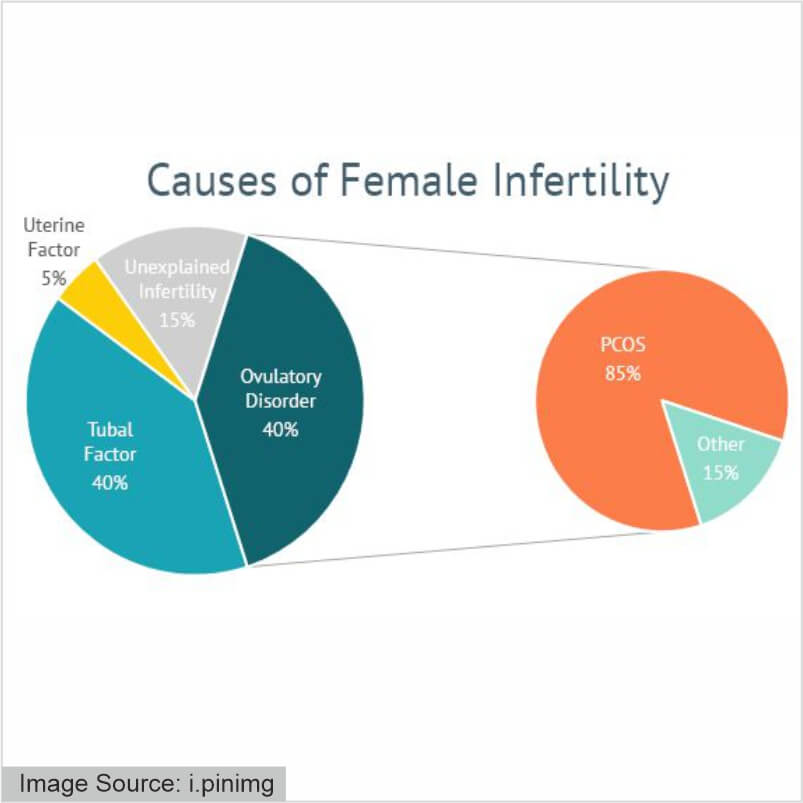
1) Cutting down on Caffeine
Caffeine is dominantly present in beverages like coffee, tea and soft drinks which may disrupt your estrogen levels. Replacing tea with green tea or fresh fruit juices might prove beneficial to your health.2) Loading up on Vitamin D and Calcium
Vitamin D is a vital endocrine hormone. A combination of vitamin D and calcium can regulate your hormones and help with ovulation.3) Quit smoking and drinking
Women with PCOS are at a higher risk of metabolic disorders. Smoking will only accelerate the production of androgen (male hormones) levels and slow down the process of weight loss. Alcohol and PCOS do not go well. Drinking may affect the estrogen levels and lead to infertility.
4) Visiting a doctor
Plan regular visits with your doctor, if you have signs of PCOS like: Missed periods Unwanted facial or body hair Excessive acne Symptoms of diabetes such as increased thirst or hunger, blurred vision, etc
5) Kitchen essentials as supplements
Consuming regulated amounts of easily available kitchen ingredients like cinnamon, turmeric and ginger may benefit you as they are natural drugs to deal with PCOS.PCOS is a lifestyle disorder which can be minimized by following a balanced and healthy routine. The only way forward is to take control of your own lives and changing the future together. Under the Menstrual Hygiene and Reproductive Health Programme, Child Help Foundation is actively spreading awareness about this growing national concern.
Let us know if you have any queries or tips to help deal with PCOS better in the comments below.
